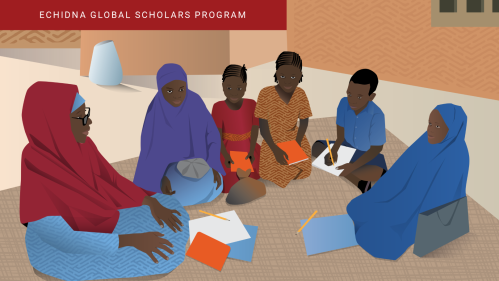When the leaders of the world’s eight wealthiest nations meet in Italy this coming week, the world’s poorest children will have a lot at stake. When G8 leaders last met in Italy in 2000, they promised to secure financing to achieve basic education for all children by 2015. As time runs out on making good on that promise, many donors are actually cutting their investments in education in the developing world. President Barack Obama and other G8 leaders should use the upcoming Summit to put forward the vision and resources needed to make education for all a reality.
The leaders of the 2000 G8 Summit in Genoa, Italy, committed to achieving the Education for All Goals, which were established by 164 countries that year in Senegal. The G8 statement that year pledged that “every child deserves a good education… We reaffirm our commitment that no government seriously committed to achieving education for all will be thwarted in this achievement by lack of resources.” The G8 leaders even established a special education task force to ensure effective follow-up action.
In subsequent years, the G8 was even more specific about their commitment to ensuring “that by 2015 all children have access to and complete free and compulsory primary education of good quality.” In 2005, each G8 leader promised to dramatically scale-up development assistance focused on Sub-Saharan Africa. They also pledged to secure additional financing for the Education For All Fast Track Initiative, which was set up to mobilize the donor financing needed to support comprehensive national plans for universal education.
Despite these promises, donor assistance to basic education has fallen far short of what is required to meet these commitments. Conservative estimates by UNESCO show that at least $11 billion is needed each year from donors to achieve education for all. Yet, official development assistance commitments didn’t reach even half that much and actual disbursements to basic education were less than one third of that amount. After 2006, basic education funding by donors actually fell by over 20 percent.
Most of the early gains in support for education actually came from countries outside the G8. The Netherlands, with a Gross Domestic Product one-fifteenth the size of the United States, actually provides more support for basic education than the U.S. The Netherlands is still the largest contributor to the multilateral catalytic fund of the Education For All Fast Track Initiative. As a result, the FTI now faces a financing gap that is as large as all the money it has raised in the last six years.
One of the major ongoing challenges is that basic education in the poorest countries lacks priority within donor development budgets. Since 2000, the actual share of official development assistance devoted to basic education has remained flat at just 4 percent. The percentage of basic education funding that went to the least developed countries actually declined since 2000.
Within the G8, both the United Kingdom and Canada stand out for devoting over 10 percent of their development assistance to basic education. These countries also direct more of this education assistance to low-income countries, with the UK focusing 90 percent of its funding on these countries. In contrast, low-income countries received less than one third of the education assistance from Germany and Japan and less than half of the education support provided by the United States and France.
The upcoming G8 Summit provides one of the last opportunities for the leaders of the world’s wealthiest nations to make good on their commitment to achieve education for all by 2015. President Obama will be attending his first G8 summit and he has promised to create a Global Fund for Education and contribute $2 billion so that every child has the chance to learn. His vision for a Global Fund for Education has recently been endorsed by a number of Nobel Laureates, such as Archbishop Emeritus Desmond Tutu of South Africa and Professor Muhammad Yunus who created the Grameen Bank. If President Obama seizes this moment of opportunity to move forward with a bold investment in education, it could leverage the rest of the G8 to follow through on their commitments and make an enormous difference in the lives of the world’s children.
The Brookings Institution is committed to quality, independence, and impact.
We are supported by a diverse array of funders. In line with our values and policies, each Brookings publication represents the sole views of its author(s).



Commentary
Op-edWill the G8 Deliver on Education for All?
July 1, 2009